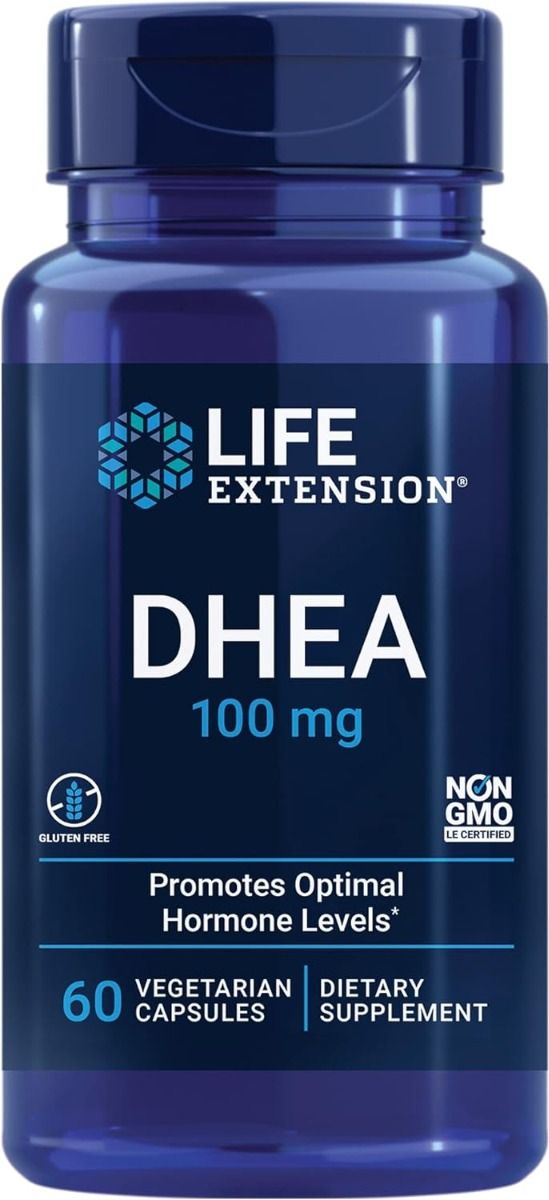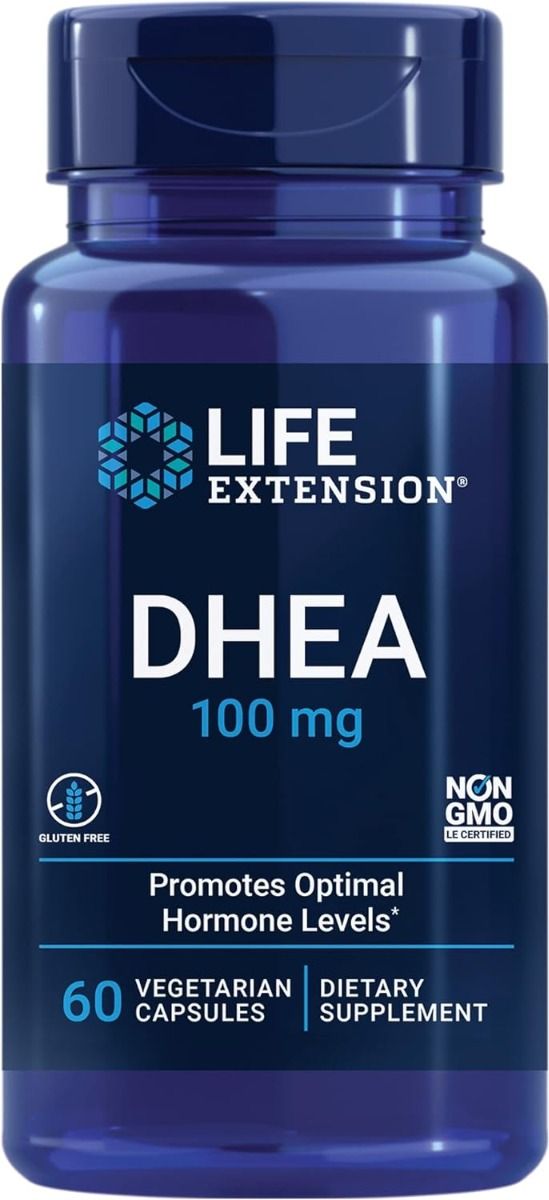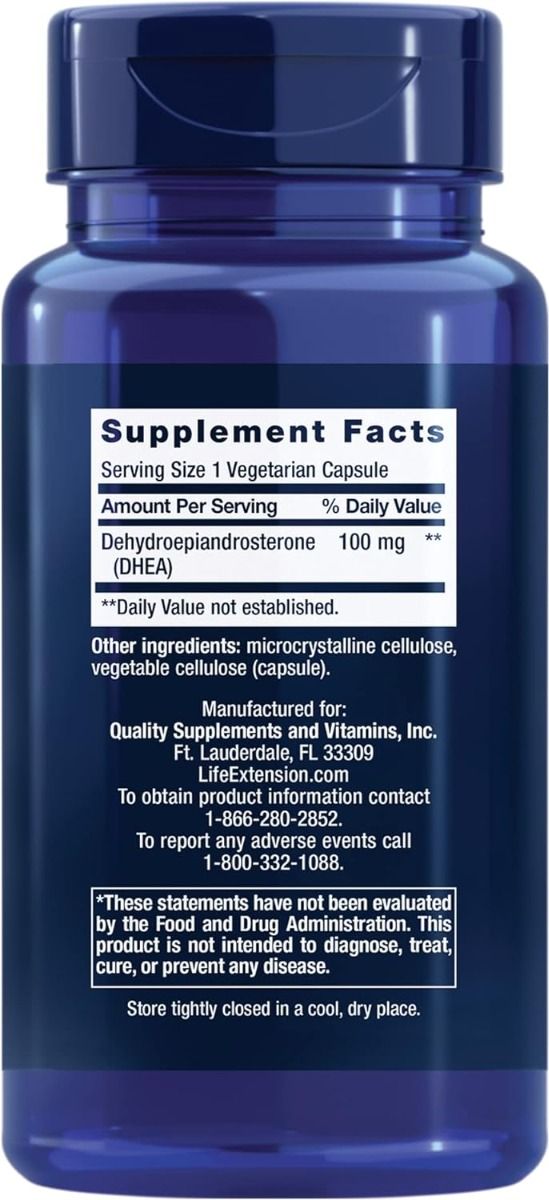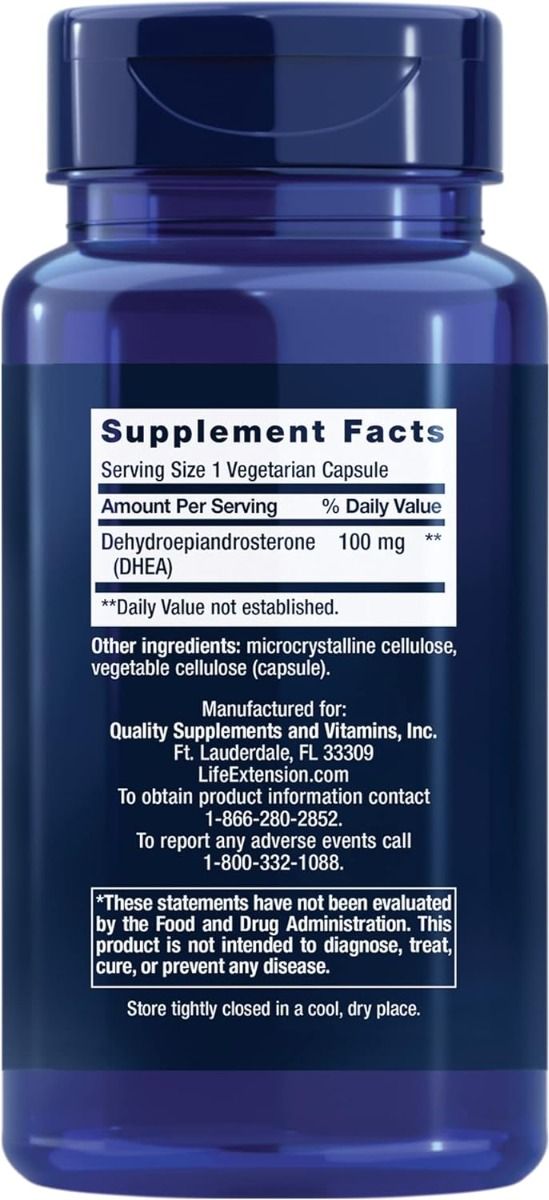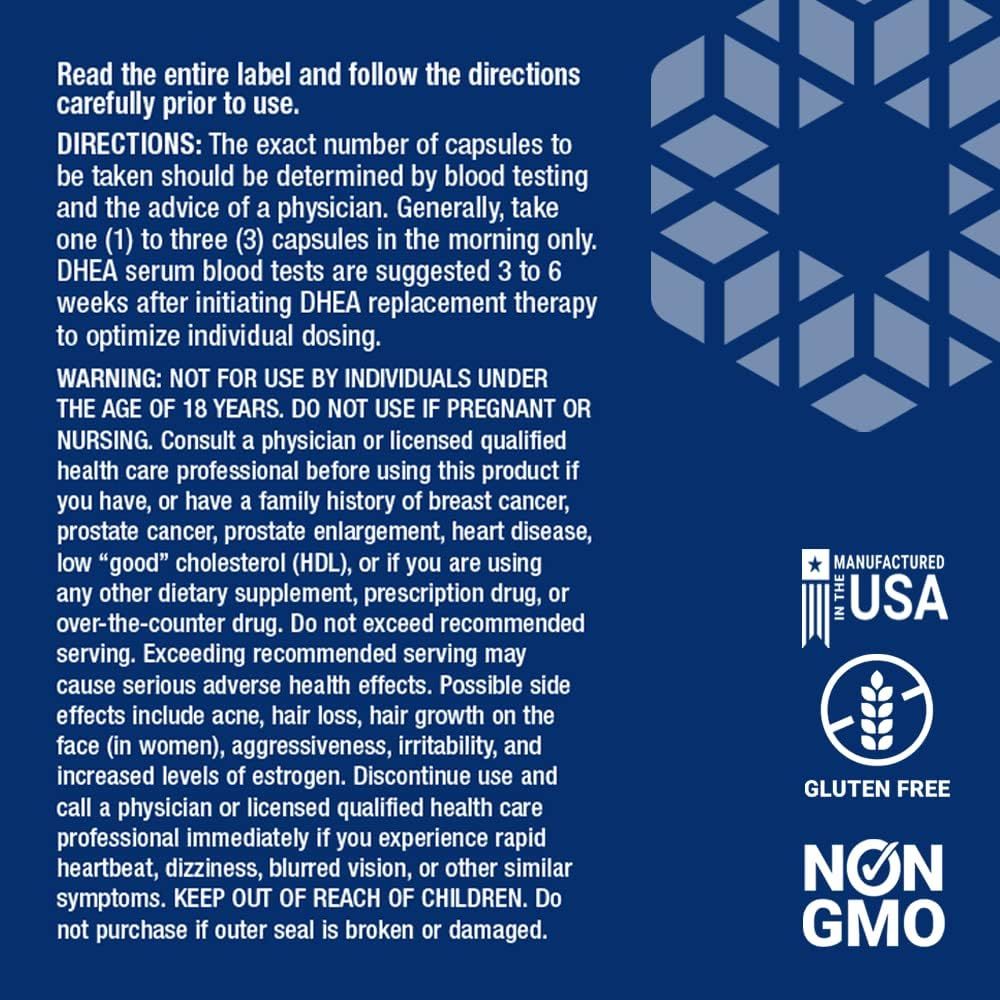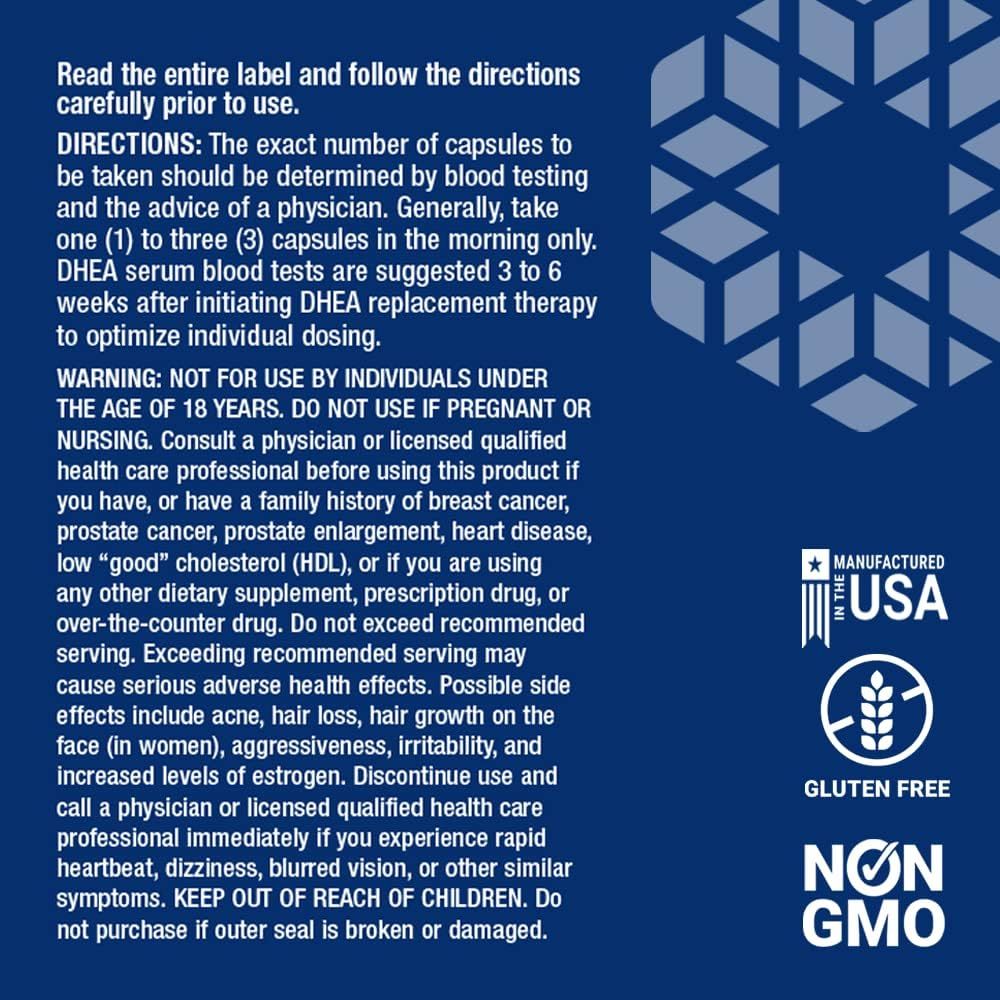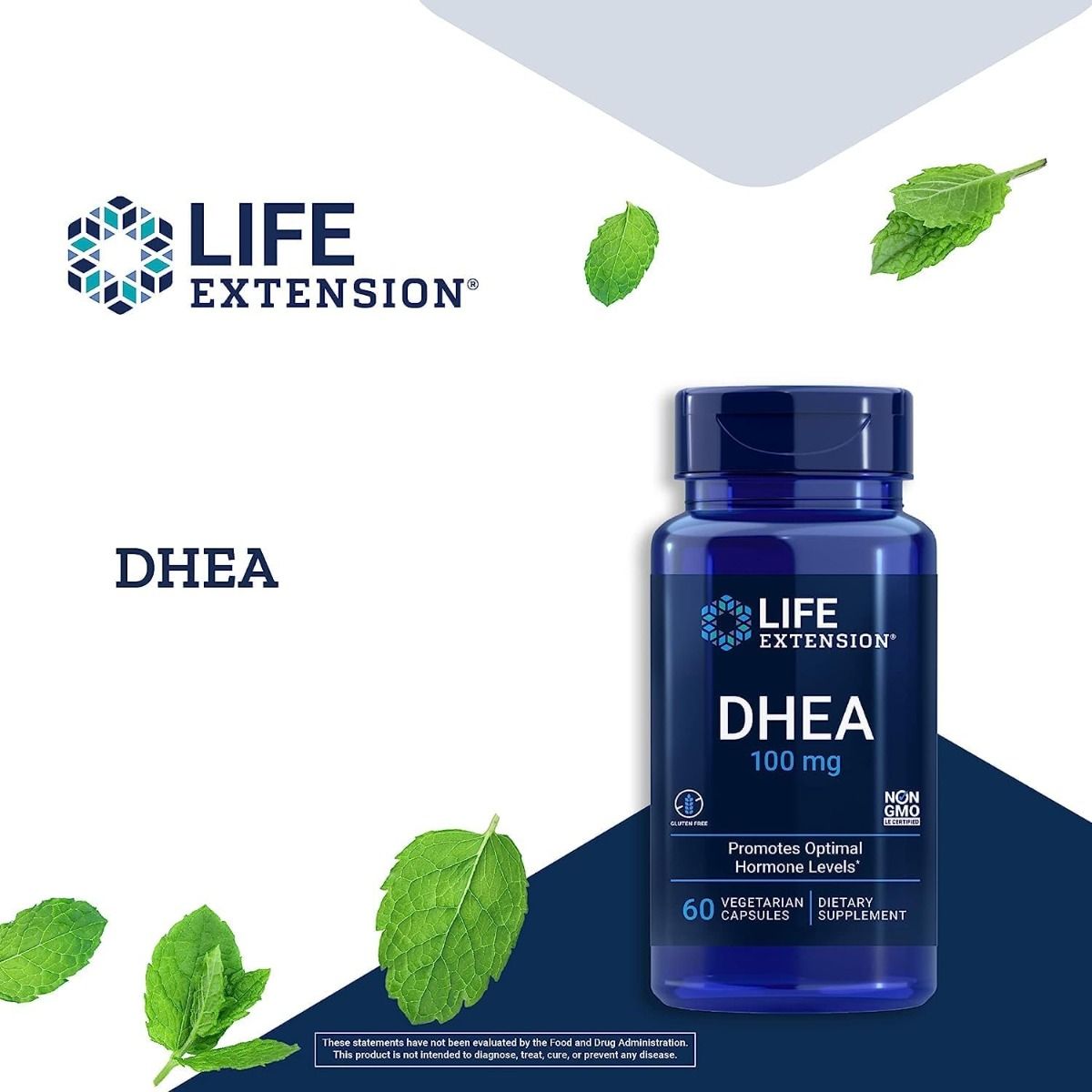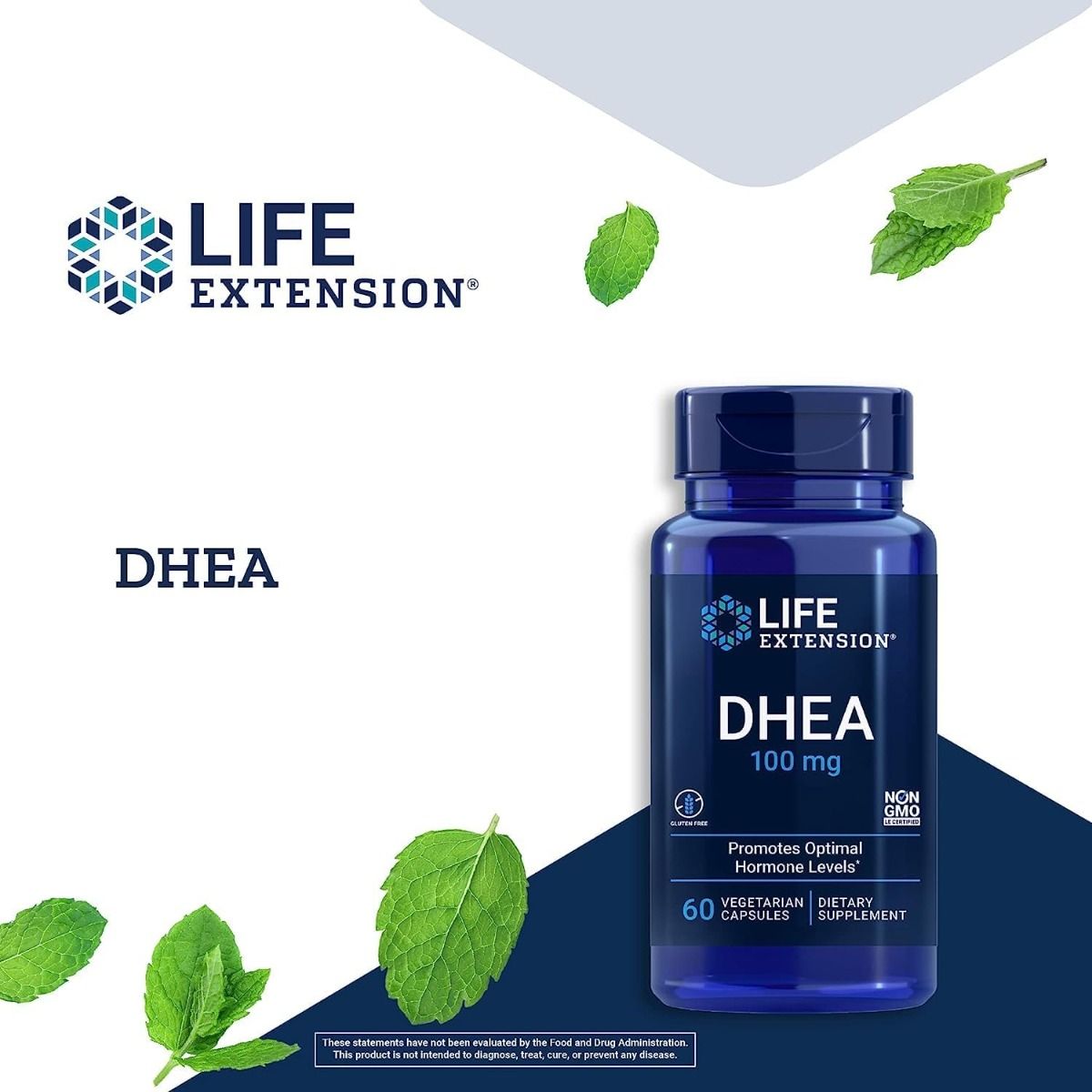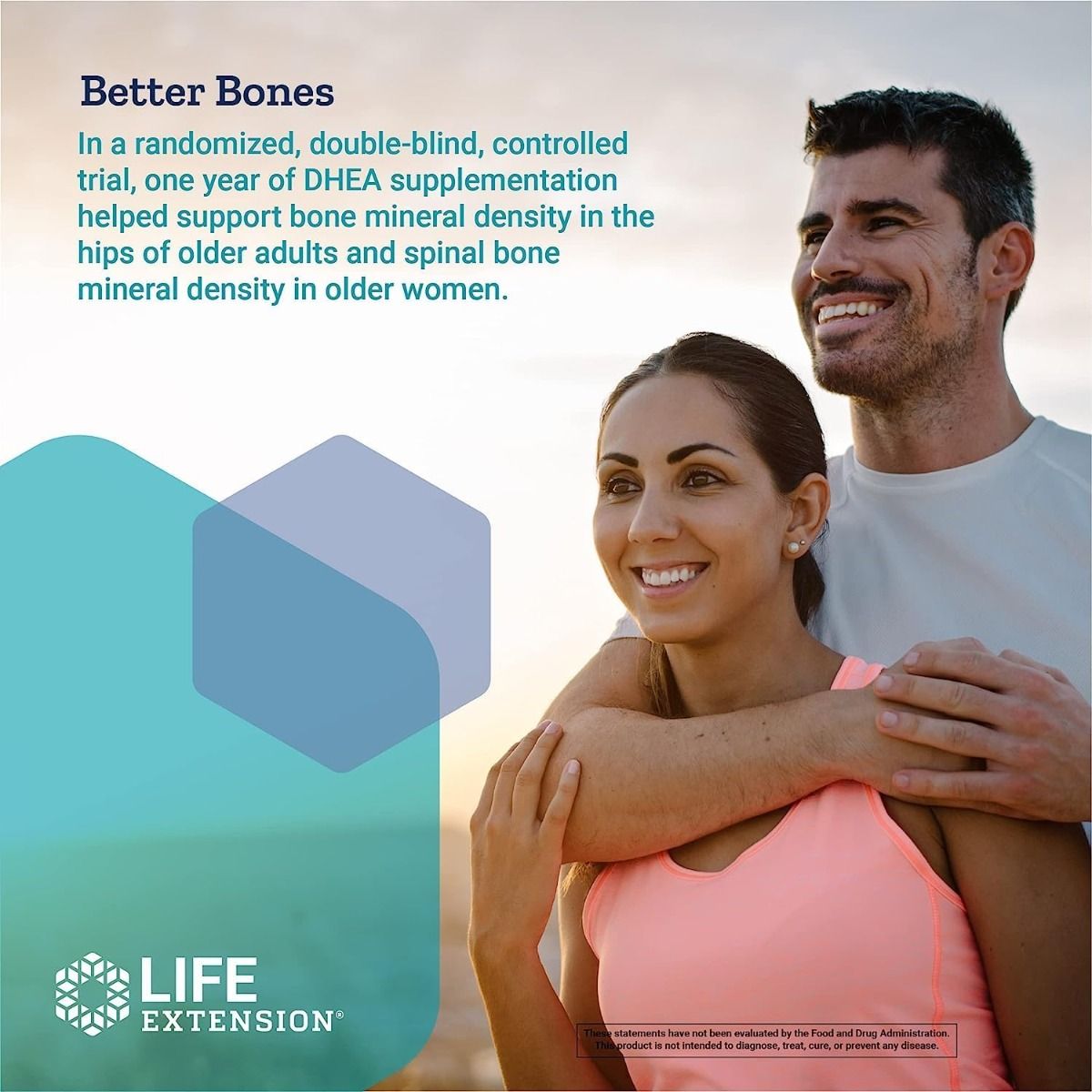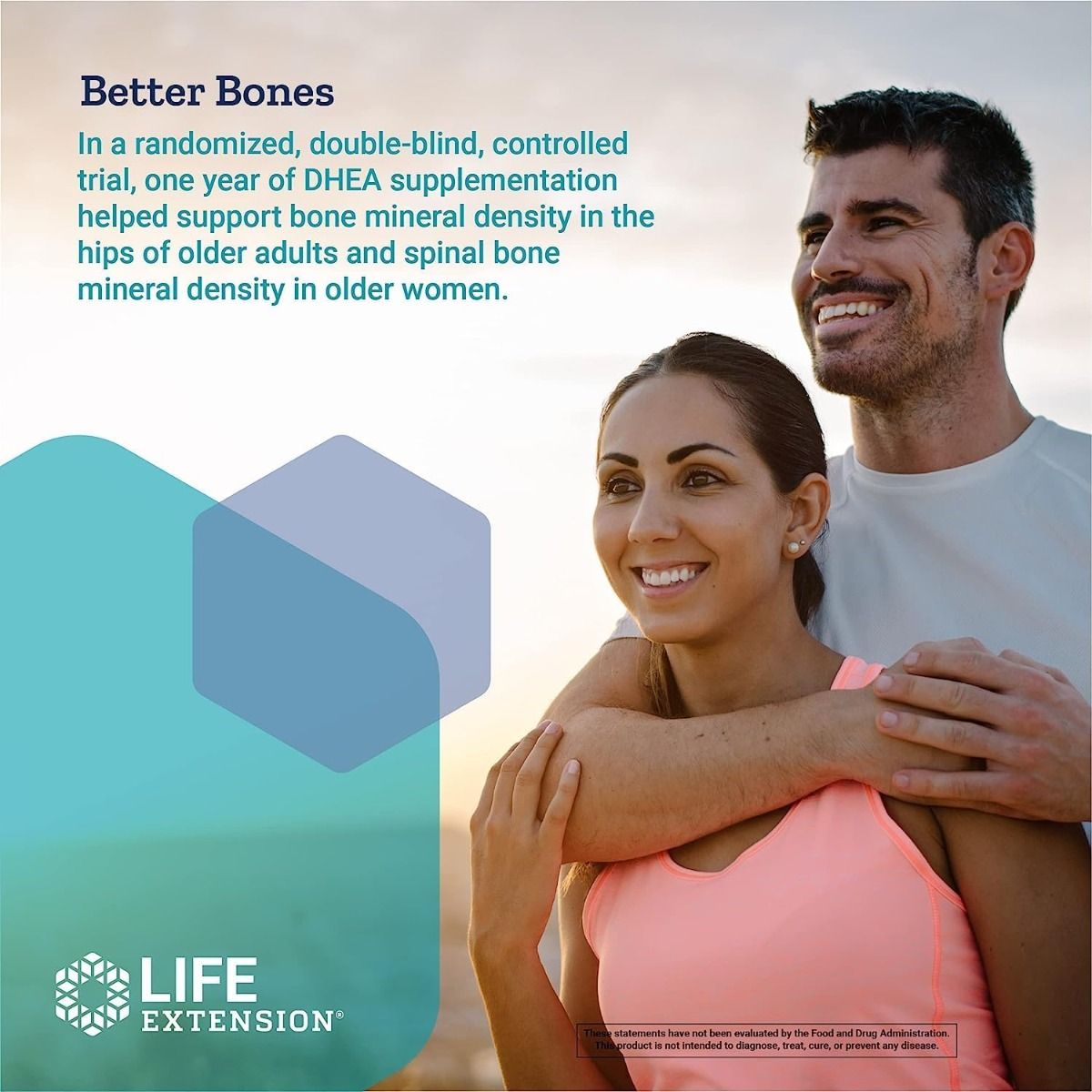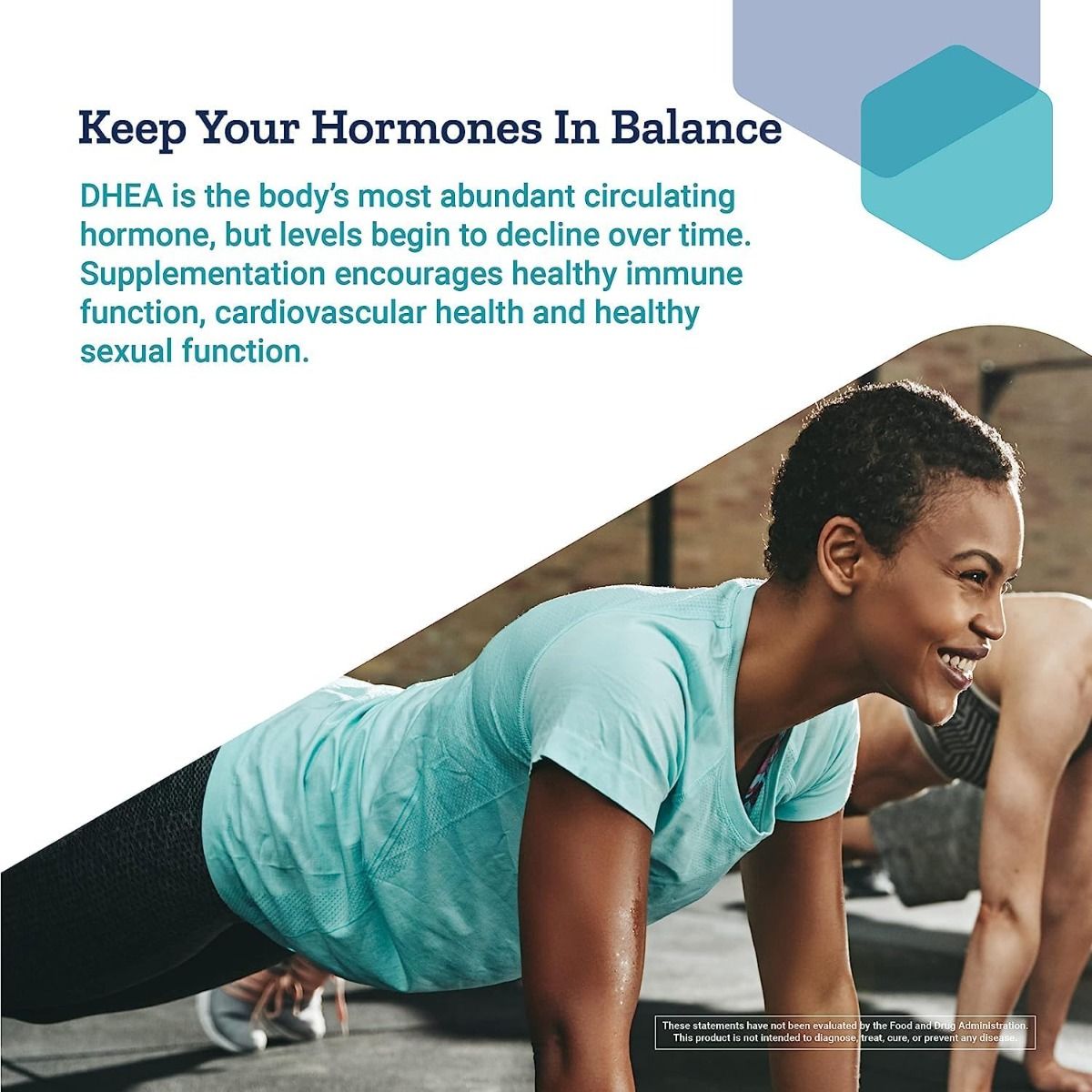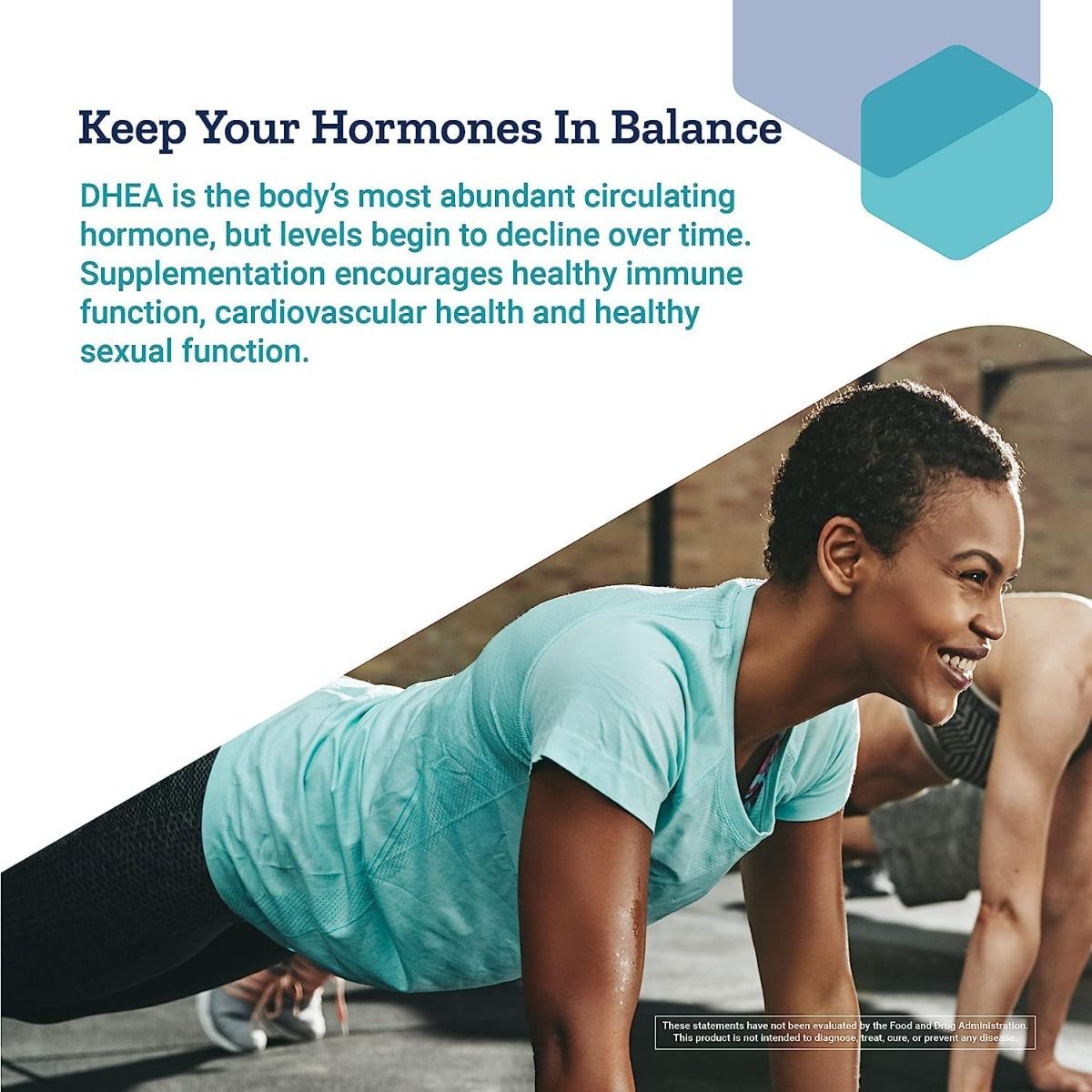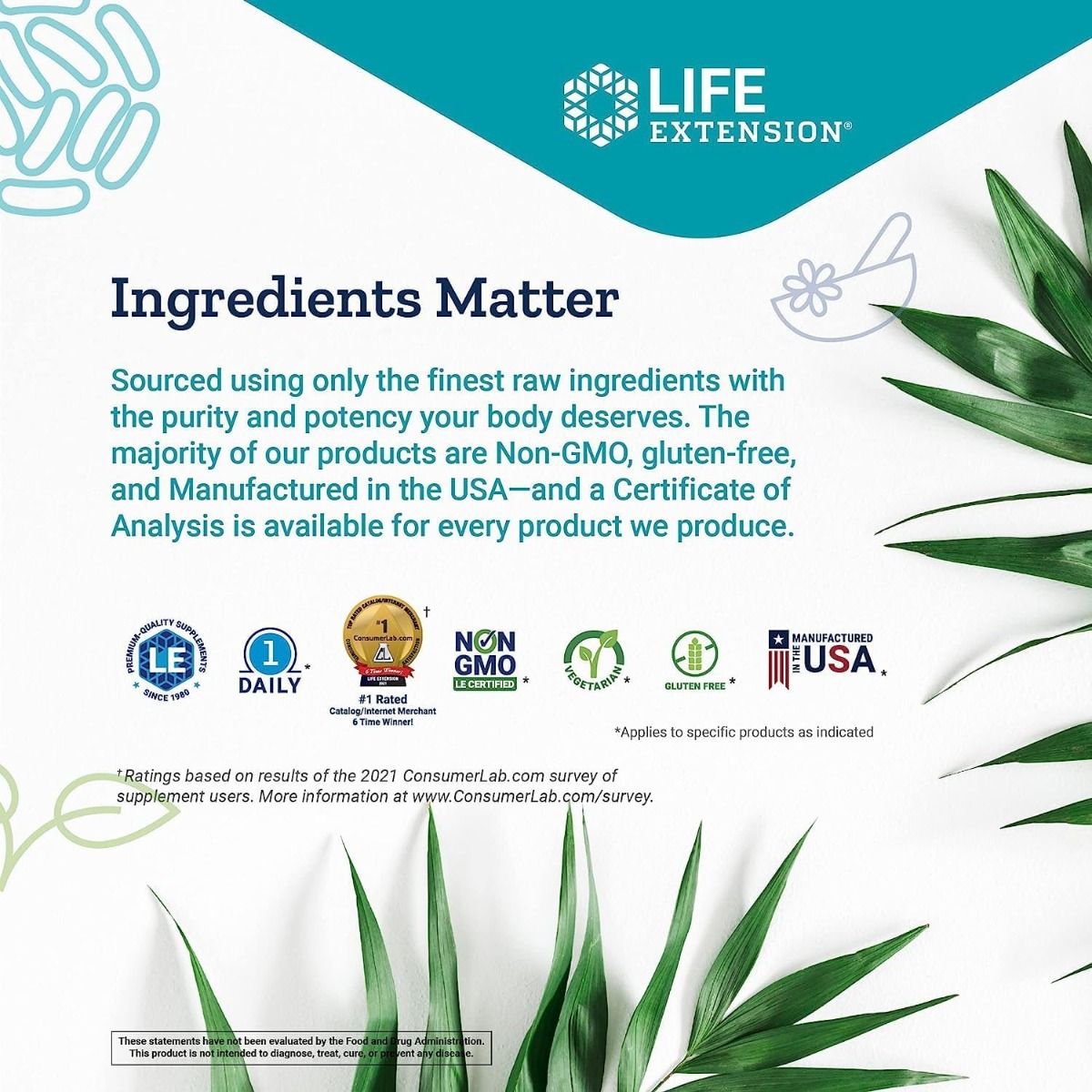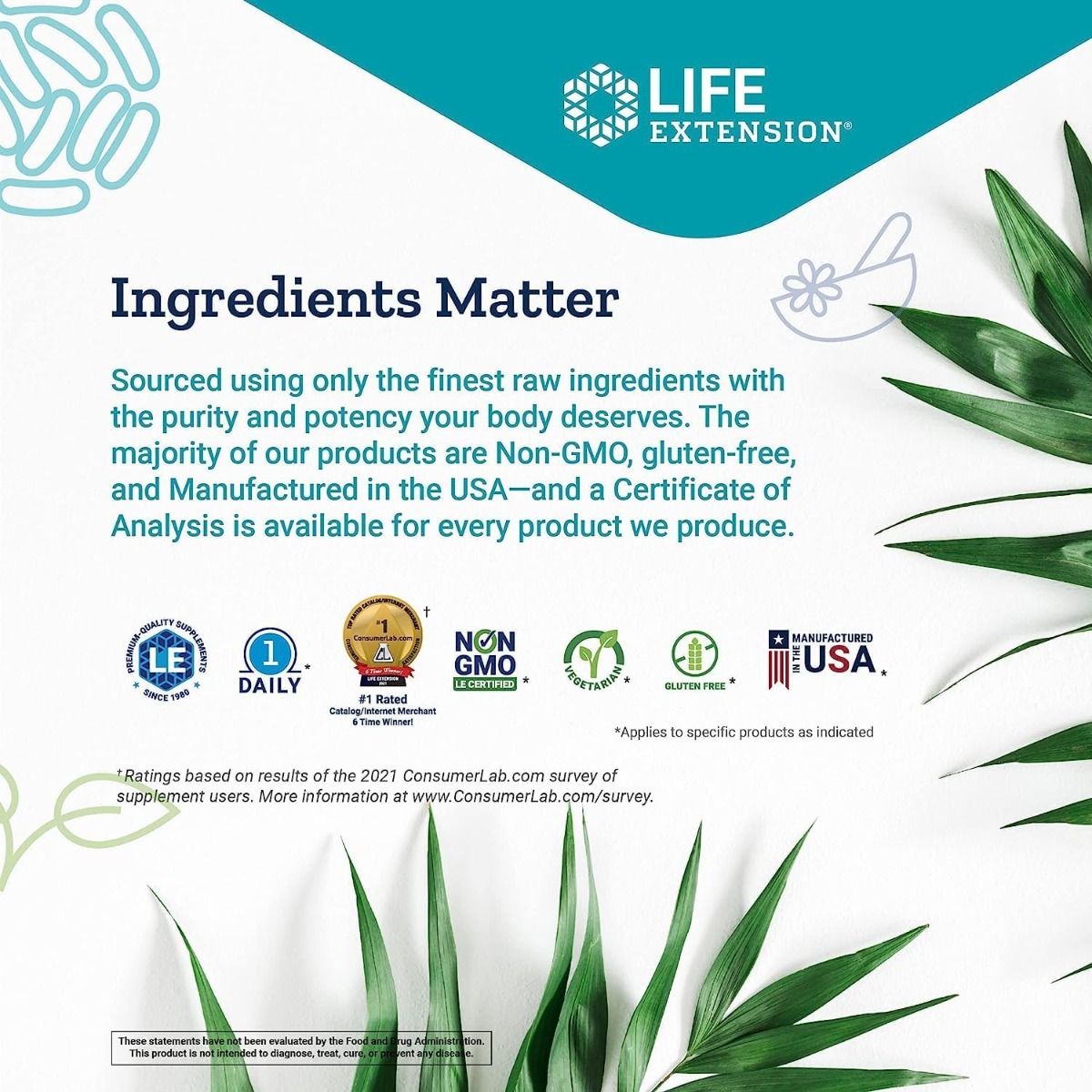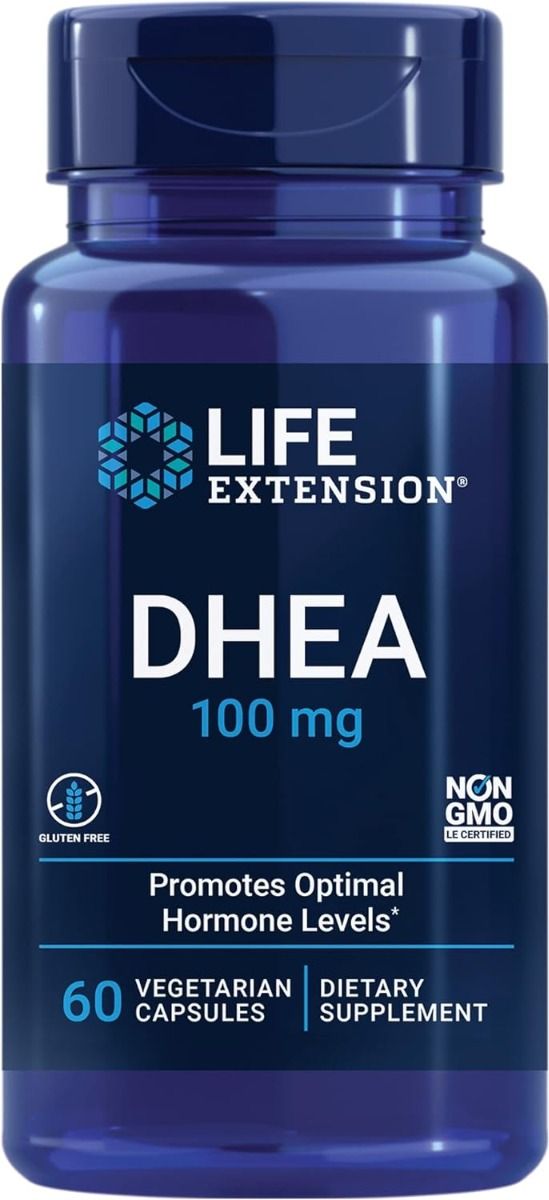DHEA 100 MG 60 Veggie Caps
Couldn't load pickup availability
Shipping & Return
Shipping & Return
Shipping
Shipping and handling charges are a flat rate of $4.95 for all Standard Shipping method orders and FREE for orders over $75 within the contiguous U.S. only, excluding Hawaii, Alaska & Puerto Rico.
30 Day Hassle Free Returns
If you’re not satisfied with our product, simply contact us and we’ll give you a full, 100% hassle-free refund.
Description
Description
DHEA (Dehydroepiandrosterone)
100 mg 60 vegetarian capsules
It has been shown that the serum hormone DHEA often declines by 75%–80% from peak levels by age 70, leading to hormonal imbalances that can affect one’s quality of life. Peak blood levels of DHEA occur at approximately age 25, decreasing progressively thereafter. The marked decline in serum DHEA with age is believed to play a role in health problems associated with aging. Thus, scientists have been looking at ways of restoring DHEA to youthful levels to prevent or reverse those health issues, and are now discovering mechanisms by which DHEA protects against age-related decline.
Since 1981, several thousand studies have been published on DHEA’s various benefits, including immunomodulatory properties as well as positive effects on mood, quality of life, and body composition. It has been proposed that restoring the circulating levels of DHEA to those found in young people may improve well-being and sexual function. In a randomized, double-blind, placebo-controlled study, ten months of DHEA replacement therapy showed a beneficial effect of enhancing the increases in muscle mass and strength with the addition of resistance exercise in elderly individuals. The studies of DHEA therapy in women with adrenal insufficiency also suggest beneficial effects on well-being, mood, and sexuality. DHEA could be of benefit to the normal aging brain. Some studies have reported DHEA may improve mood and alleviate melancholy. In addition, recent studies have shown that DHEA has the capacity to improve vascular health by a number of complex processes. One of them is increasing nitric oxide synthesis.
In a randomized, double-blind, controlled trial, DHEA replacement therapy for one year helped protect hip bone mineral density in older adults and spine bone mineral density in older women. DHEA has also been shown to support a healthy circulatory system and joint/bone health.
DHEA usage and safety precautions
Life Extension has been investigating DHEA for over 30 years. Life Extension’s DHEA directions for use are specially drafted to provide optimal, but safe dosing.
The standard blood test to evaluate DHEA status is one that measures DHEA sulfate levels (dehydroepiandrosterone sulfate or DHEA-S). The DHEA-S is calculated in micrograms per deciliter (µg/dL) of blood. A DHEA-S blood test may be taken three to six weeks after initiating a DHEA supplementation regimen to help determine optimal dosing. DHEA testing may save you money if it shows you can take less DHEA to maintain youthful DHEA serum levels.
Because of the overwhelming evidence connecting low levels of DHEA to problems associated with aging, Life Extension suggests that all people over age 40 begin DHEA therapy. For most people, the starting dose of DHEA is between 15–75 mg, taken in one daily dose. Many studies have used a daily dose of 50 mg.
Since almost everyone over age 35–40 has lower than optimal levels of DHEA, most people begin supplementation ... and then test their blood DHEA levels later to make sure they are taking the proper dose. Normal serum reference ranges and ideal ranges of DHEA-S are:
|
Normal
(depending on age) |
Ideal
|
|
| Men |
16.2-492 µg/dL
|
350-490 µg/dL
|
| Women |
12-407 µg/dL
|
275-400 µg/dL
|
People over age 40 who do not supplement with DHEA usually have serum levels below 200 µg/dL, and many are below 100 µg/dL since a steady decline takes place after the third decade in life.
There are different precautions for men and women that should be observed.
DHEA precautions for men
Before attempting to restore DHEA to youthful levels, men should know their serum PSA (prostate specific antigen) level. Men with prostate cancer or severe benign prostate disease are advised to avoid DHEA since it can be converted into testosterone (and estrogen). Therefore, men are advised to have a PSA and digital rectal exam before initiating DHEA to rule out existing prostate disease.
When taking DHEA we also recommend taking the following other nutrients daily:
| Vitamin D | 5,000 – 10,000 IU |
|
Vitamin E |
400 IU |
| Selenium | 200 mcg |
|
Gamma E Tocopherol |
200 mg |
| Lycopene Extract | 10 – 40 mg |
| Boron | 3 – 10 mg |
| Cruciferous Vegetable Extracts (as found in Triple Action Cruciferous Vegetable Extract) |
500 – 1000 mg |
It is important for men over 40 to have a physician check their PSA and DHEA-S serum levels every six to twelve months thereafter. Men should also periodically check their blood levels for free testosterone and estrogen to make sure that DHEA is following a youthful metabolic pathway.
See the Male Hormone Restoration protocol or the Male Hormone Modulation chapter in the Disease Prevention & Treatment book for additional hormone balance testing that can be done at the same time serum DHEA-S and PSA levels are being tested.
DHEA precautions for women
Women should consider estrogen and testosterone testing when they take their DHEA blood test in order to evaluate DHEA’s effect on their blood levels of these hormones.
Women who have been diagnosed with an estrogen-dependent cancer should consult their physicians before beginning the DHEA restoration process.
When taking DHEA we also recommend taking the following other nutrients to maintain a healthy balance each day:
| Melatonin | 300 mcg – 3 mg (nightly) |
|
Vitamin E |
400 IU |
| Broccoli Extract (as found in Triple Action Cruciferous Vegetable Extract) |
400 mg |
|
Indole-3-carbinol |
80 – 160 mg |
| Vitamin D3 | 5,000 – 10,000 IU |
| Gamma Tocopherol with Sesame Lignans |
200 mg |

